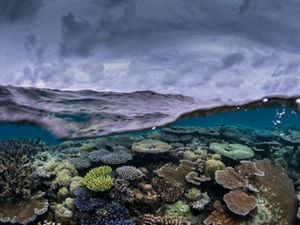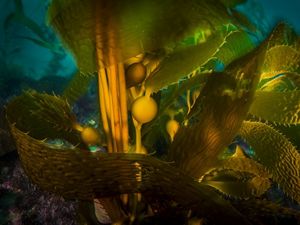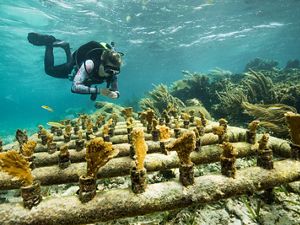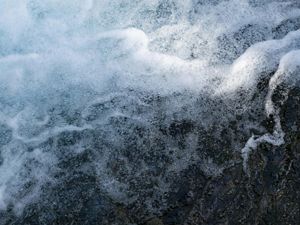Why is the ocean so important?
Covering more than 70% of Earth's surface, the ocean plays an essential role in each of our lives, no matter where we live. The ocean is the heart of our planet, pumping oxygen, nutrients, water and weather around the globe. This constant circulation directly and indirectly provides the food and water we need to live and forms the backbone of our economies.
Stats out of the Blue
-
1/2
Half of the oxygen we breathe comes from the natural processes of ocean plankton. That's every other breath.
-
90%
Since the Industrial Revolution, the ocean has absorbed about 90% of the excess heat in our atmosphere.
-
3 B
More than 3 billion people depend on fish and other ocean species for food and income.
-
8%
Only 8% of the ocean is legally protected.

9 Reasons to Thank the Ocean
There's more than just fish in the sea! Explore what else the ocean provides, from crucial medicines to inspiration for music and dance.

The ocean: our greatest climate ally
The ocean's coral reefs and oyster beds shelter marine life and protect our shores by breaking up wave energy and storm surges.
On the edges of the ocean, coastal wetlands—such as mangroves, salt marshes and seagrass meadows—protect our shores, too. They also draw in carbon as they grow and transfer it into their leaves, stems and the rich soils held by their roots.
This “blue carbon” can remain in the soil for thousands of years. In fact, coastal wetlands store five times more carbon per hectare than rainforests, helping to limit further climate change.
a short explainer on Blue Carbon
Take a Two-Minute Deep Dive
Acting for the ocean
Though the ocean is one of our greatest allies against climate change, absorbing most of the excess heat and carbon dioxide in our atmosphere, it’s been paying a steep price.
Warming, acidification, overfishing and pollution increasingly threaten the ocean’s ability to sustain us, as our demands on it—for food, energy and water—continue to mount.
The stakes have never been higher. That's why TNC is supporting the world's goal to protect 30% of the ocean by 2030.
To contribute to that goal by 2030, we intend to conserve 4 billion hectares—that's more than 10% of the world’s ocean area—while working with communities on solutions that help protect 100 million people at severe risk of climate-related emergencies.
Learn more about our 2030 goals and how you can get involved.
Our Ocean Strategies
Click the tiles for details on our top ocean conservation strategies and real examples of our work around the world.
The People Working to Save Corals

Stay connected for the latest news from nature.
Get global conservation stories, news and local opportunities near you. Check out a sample Nature News email.







